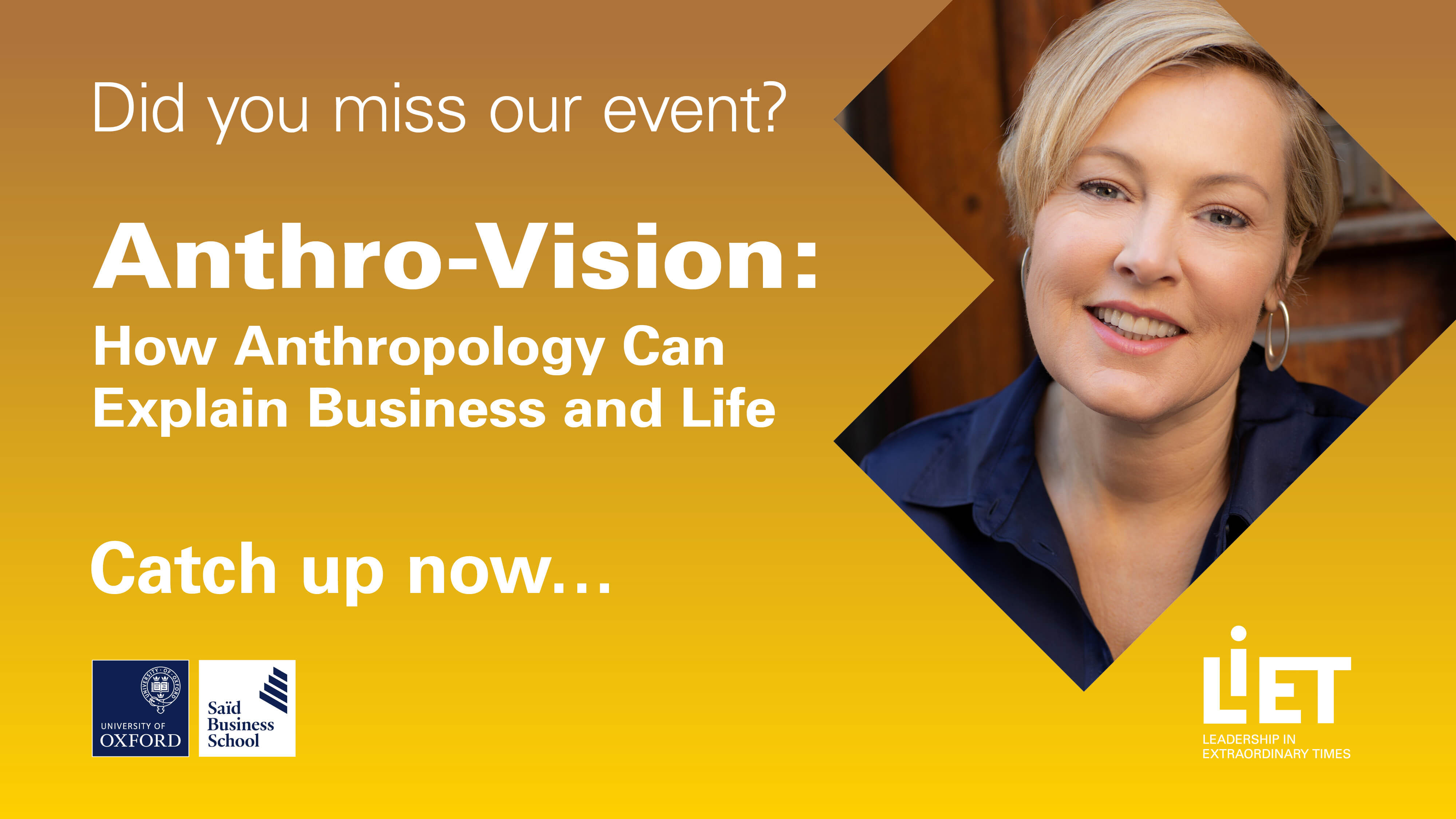Anthro-Vision: How anthropology can explain business and life

Watch the event or listen to the podcast on Spotify or Apple.
Peter Tufano interviews Gillian Tett about her new book: Anthro-Vision: How Anthropology Can Explain Business and Life
From what’s really happening when we give Google our data to how to navigate a modern career path, anthropology can help us make sense of the world in a different way from economics and psychology. As Dr Gillian Tett, Financial Times journalist and author of Anthro-Vision: How Anthropology Can Explain Business and Life, explained to Dean Peter Tufano, anthropology is based on observing people in societies and cultures in a bottom-up way, making connections, and focusing ‘not just on what people say, but [on] the gap between what they say and do and what they don't say: what we call “social silences”.’
During their conversation as part of the Leadership in Extraordinary Times series, Tett revealed how she adopted an anthropological approach and looked for the ‘social silences’ in media coverage of the City of London in 2004. This led her to recognise how little attention was being paid to the debt and derivatives markets, where the risks leading to the 2008 financial crisis were already building. More recently, anthropology has helped her shed new light on concerns about data collection and privacy, identifying it as a system of barter, in which consumers give up their data in exchange for services they want.
Other interesting points that emerged from the wide-ranging discussion were:
- Thinking yourself into the mind of someone who seems different from you gives you empathy for another point of view: something that is crucial in a global world. But it also helps you to look back at yourself with more perspective.
- Leaders can often develop ‘tunnel vision’ and imagine that everyone thinks in the same way that they do. Outsiders can be helpful in identifying the ‘social silences’ that are blocking change.
- Studying at business school has historically been an ‘initiation rite’ into the corporate world, something that creates networks of people that are inculcated with the same set of ideas. But as we move away from the concept of shareholder primacy, and as business becomes more connected with other parts of society, business schools will change too.



